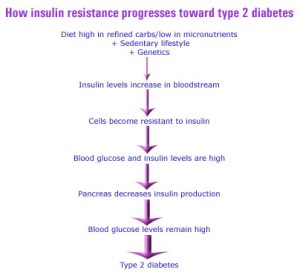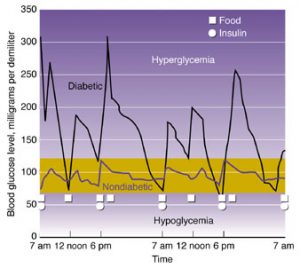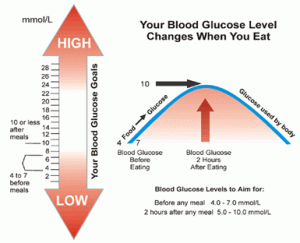What is a normal range for blood glucose levels?

What is a normal range for blood glucose levels? Typically on average for blood glucose levels are between 70 and 110. For some people this may not always be the case due to many leading factors that are taken into consideration such as body weight, family history, age and gender.
A blood sugar level of 30 of below can send a person into a diabetic shock or coma and if left untreated for long periods of time can cause medical problems that can end up being detrimental to a person and even lead to kidney failure, systems and organs shutting down and even death.
A normal range for blood glucose levels is very important to someone who has diabetes because without having a normal range they can develop medical problems that can leave to more serious medical conditions down the road if left untreated.
A low for blood glucose levels normally falls in the range of below 70 and can cause a person to become lethargic, lightheaded, dizzy, weak and shaky just to name a few. If you or someone you know starts experiencing these problems or symptoms the best thing to do is go ahead and give them a piece of candy or a drink that contains high amounts of sugar to bring their blood glucose level back up.
A high blood glucose levels generally fall within or above 120-170 range, but this can vary from person to person. Symptoms of hypertension or high blood sugar is rapid heart rate, shakiness, fainting and frequent urination just to name a few.
A normal range for blood glucose levels can mean the difference between life and death to diabetes who suffer from Type II diabetes or who are insulin dependent. Insulin dependent diabetics need a normal range for blood glucose levels so that their bodies stay in sync with each other and everything is kept in proper working order.



